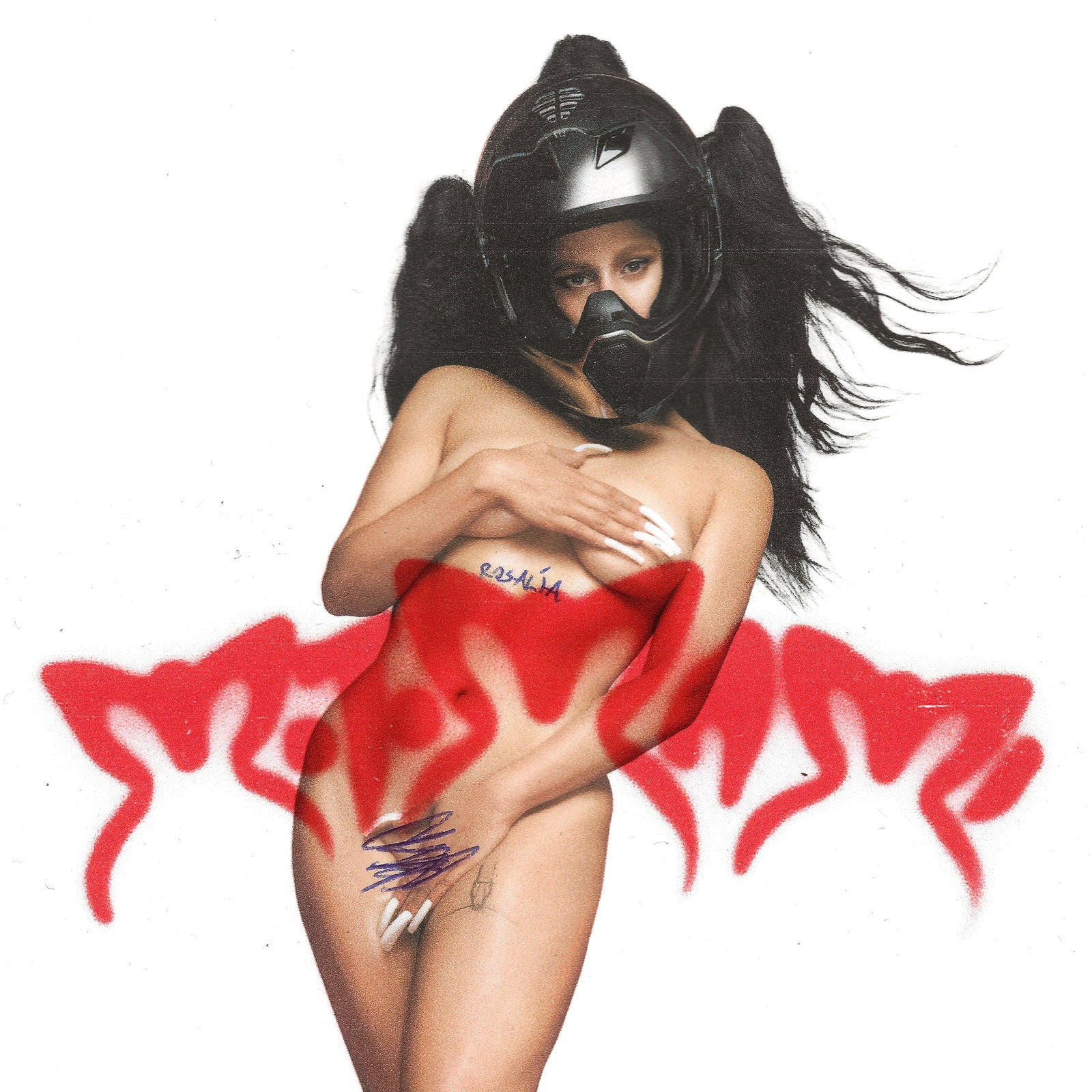Rosalía
MOTOMAMI
COLUMBIA
ABOVE THE CURRENT
On her third album MOTOMAMI, Spanish pop star Rosalía solidifies her musical command over listeners’ potent bodily reactions. Her power to galvanize ass shaking is just as strong as her ability to animate waterworks; she can give a ballad named after fetishistic porn the drama and gravity of someone revealing their undying love for another. She’s fine tuned her transmission and pieced together her strongest lyrical themes—homages to family, pop-cultural smirks, unfearing emotional flexibility—on top of a powerful genre-diverse engine, experimenting with flamenco, dembow, bolero, reggaeton, rap, country-tinged pop, and aching balladry, alongside unmatchable vocals. Gripping her closely on the back of her motorbike, MOTOMAMI takes us for a ride as Rosalía delicately flexes the clutch, switching gears, lanes, and speeds like she’s performing a steel-toed ballet.
Immediately, Rosalía makes clear she’s not sticking to one mode. Opener “SAOKO” honors Daddy Yankee and Wisin while declaring her chameleonic tendencies: “Yo soy muy mía, yo me transformo,” she sings during the chorus. “Me contradigo, yo me transformo.” With a sly mixture of jazz and grimy muffler-growling bass, she accepts herself, acknowledges impermanence, and revs her engine with confidence. Later she notes, “Si me muero, que me muera por la boca como muere el pe,” which is previewed by collaborator Frank Ocean’s advice to “open the world like a nut.” Advice she takes, to our benefit, for the next 42 minutes.
“Ser una popstar nunca te dura,” she sings hauntingly on the modestly produced “SAKURA,” closing the record with the concept of fame’s impermanence. Throughout MOTOMAMI, Rosalía showcases such experiential, musical, and cultural knowledge with playful gumption. When she’s not combining a rare Soulja Boy sample with her take on a late-’60s hit from Cuban singer Justo Betancourt, she’s allowing her vocals to soar soprano alongside her recounting of numbers on “CUUUUuuuuuute,” while on a later spoken reinvention of the alphabet titled “Abcedefg” she achingly sings about the pandemic’s passage of time, past loves’ imprints, and the delusion that fame leaves one of substance.
In a recent interview, Rosalía explained the punk heart of being a “motomami” by saying “it’s doing as much as you can with what you have.” In another, she revealed that she measures every theme, act, or sentiment on the album with equal respect, “[putting] everything on the same level.” On MOTOMAMI, Rosalía shows honor to her memory, musical history, and—most importantly—herself. On the soft-hard track “DIABLO,” she imagines the fame, the money, the glamour vanishing, a night-to-day shift. It wouldn’t matter, switching between modes or money, as she declared on “BULERÍAS.” Her voice echoes with dignity as she sings: “Y aunque no tenga dinero / O no tenga a nadie / Yo voy a seguir cantando / Porque me nace.” Time, emotions, and possibilities collapse on top of each other as Rosalía rides with fury. Fame’s fire might be brief, but Rosalía's light shines wildly in spite of it.







